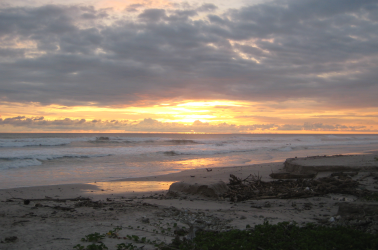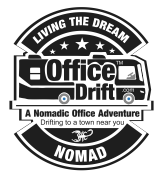
Digital Nomads Are Being Encouraged To Come To Costa Rica!
The pandemic has hurt the entire world’s tourism economy badly. Cruises are only now being reactivated. Airline routes have not all fully recovered yet. Warren Buffet even sold all his Airline stock as they lost all confidence. However, now 18 months later, Bill Gates was reported to have purchased a majority share of 4 Season’s Luxury Resorts, so let’s all remember tourism isn’t disappearing as we all know.Internet Access
A 4 hour flight south of the USA (in the same time zone as Houston, Texas) is a small, safe, democratic Central American Country with only 5 million people that relies heavily on tourism, was hurt badly.
It’s economy has been rocked, just like many other tourism dependent locations worldwide. During the lockdowns- businesses hurt, many layoffs occurred immediately and employment went way up. This small country is Costa Rica. Known for it’s natural beauty, numerous national parks, biodiversity and micro-climates. There is no Army and No Department of Defense that needs a huge budget as with many surrounding countries.
Costa Rica has many programs operated by the government’s tax base that can then be redirected to it’s people with it’s extensive public health care system. Small businesses are welcomed and encouraged, and much like the USA of 1960’s, small family owned businesses thrive. Here even in the big city of San Jose, you can walk in and speak directly to the owner by first name, which is quite common. Small restaurants (Soda’s) serve home cooked meals for $5-$6.00 including the taxes. Sure the country has large corporations like Walmart, but instead of Amazon deliveries, these small companies themselves will deliver direct to you or through a small delivery service. There is no Amazon strangling off the lifeblood of the economy of small retail as what has occured in the USA.
But the purpose of this article is to discuss a unique law that encourages digital nomads to arrive.
Ley Nº 10008, Published in September 1, 2021:
“Ley para Atraer Trabajadores y Prestadores Remotos de Servicios de Carácter Internacional (Expediente 22.215)”
“La presente ley tiene por objetivo promover la atracción de personas trabajadoras y prestadoras de servicios que se llevan a cabo de forma remota, con el fin de fomentar la visitación de larga estancia en Costa Rica y aumentar el gasto de recursos de origen extranjero en el país.”
or in English “The purpose of this law is to promote the attraction of workers and service providers who work remotely, in order to encourage long-stay visits to Costa Rica and increase the expenditure of foreign resources in the country.”
The bill was passed and signed by President Alvarado allowing a special new visa category for “Digital Nomads” to remain one year inside of the Country. The requirements are proof of a steady $3,000 a month income for online or contracted work for clients outside of Costa Rica. The visa is not for foreigners to work locally in Costa Rica or provide services inside Costa Rica and/or becoming employed informally. The $3,000 per month income is required for individuals, and to buy health insurance coverage. This visa requires you remain in the country working remotely a minimum of 180 days of the first year and is also extendable beyond one year. The ability to open a local bank account and not pay income taxes in Costa Rica as well as importing your computer and remote working equipment duty free without import taxes is also part of the package. Until now, only legal foreign residents can have local bank accounts. As far as drivers licenses, your home countries license is acceptable.
The above also applies to families with parent(s) working remotely and provable steady income of $4,000. per month. The family includes young adults up to 25 years old, disabled family members and seniors living with the family.
An additional clause states that upon compliance with the above, you can change to rentista (for those under retirement age), pensionado (retired) or inversionista (investor) status per the existing 2009 immigration law. These (3) categories have been available and depend on your age, income and in the case of inversionista (Investor Visa) requires a cash investment in property to become a legal resident. In the July debates conducted in the Asamblea, the Government also lowered the investment amount during the modifications to create the new 4th category for “Digital Nomads”.
The idea behind this special visa, is that Digital Nomad’s are consumers too. They will stimulate this small economy using various services, purchase products and hire English speaking assistants.
So where would you live and stay?
There are many options and they all depend on your lifestyle. If you are beach person, mountain person or city person- all are available. From short term rentals staying in a location designed for remote working. Selina, is one growing Hostel chain catering to younger “Digital Nomads” (Important Note- this author has no affiliation with this chain, nor is this any recommendation) that has existed for a number of years is catering to the Digital Nomad and budget traveler segment. They advertise “Co-Live” and “Co-Work” in shared or private rooms, and packages for extended stays with flexibility of traveling between their other locations. They encourage people to network- so some of the private rooms do not even have televisions as we were shown on a visit. The idea is for co-working environments in public areas of their facilities for people to congregate and get to know each other.
In Costa Rica, Selina has (10) separate destinations within Costa Rica in Jaco Beach, Tamarindo (Beach), Puerto Viejo (Caribbean side of the Country), Manuel Antonio (National Park), La Fortuna (Arenal Volcano area), Monteverde (Rainforest), Nosara (Beach), Santa Teresa North and South (Mal Pais in Puntarenas on the beach) and of course San Jose, the Capital city of Costa Rica. Selina operates in a number of other Latin American countries as well. All these same locations are popular for tourists, sight-seeing and the myriad of adventure activities that Costa Rica offers.
Digital Nomad’s can also save money instead of staying with a chain like Selina in independent living room rentals and AirBnB’s. I have seen various classified ad’s for nice furnished high-rise apartments advertising nightly rates where the owner purchased and furnished the units just for AirBnB use. Also, Backpacking Hostels and small “Pensiones” are available. Some are as inexpensive as $10-15 per night and include internet Wifi. These are located all over the entire country, Tamarindo, Jaco and Santa Teresa all are popular beach locations yearly for tourists who stay on the beach on vacation or limited periods of time, now they can stay for an entire year on the beach working remotely with their laptop, you know the kind of dream work advertising you see, it’s here. But if you are the type of person who wants 70-78 F temperatures and weather all year long, you can stay in the central valley inside or near San Jose. No hurricanes, tornadoes, snow storms, only a few minor earthquakes and a volcano a couple years ago that blew some ashes around.
Internet Access
In Costa Rica, regardless of income level- everyone has a smartphone and internet access, especially for WhatsApp and Facebook. So internet access is everywhere, a common home bandwidth via the cable tv company is 100 mbs and costs approximately for $40. per month. Other plans are offered through various companies and lower bandwidth and costs.
Years ago, I recall riding a bus at night out of town. I chose the only empty seat at the last bench in the back of the bus. As the driver left the station, all the overhead lights in the bus went off, except the entire bus remained illuminated by LCD screens of just about every single seat with people checking their social media or chat. Internet coverage is fairly consistent all over the country where people are located. There are (3) phone companies Kolbi (Was the National Company ICE prior to Cafta), Claro and Movistar. Pre-paid plans are available and no contracts are required, just an ID and you get a SIM chip in a few minutes.
In Costa Rica, you will not see long term camping as with retirees or US Digital Nomads. Rarely, you will you see Motorhomes or Trailers. When Costa Rican’s go on vacation during Easter break (Semana Santa) and Christmas, they will book a small pension room, hotel or camp on the beach.
This Digital Nomad program has just started, so final details such as the filing fee through immigration need to be established.
Regardless of whether you qualify as a Digital Nomad at this point in time, you can still visit the country and test things out and stay for up to 90 days on a tourist visa. If during that stay, you enjoy it enough to apply for the Digital Nomad Visa, then you have some different options of services that offer all assistance in English to walk you through the process.
If you like the article and want to know more, feel free to leave any questions. More info and details to come!
Pura Vida!

